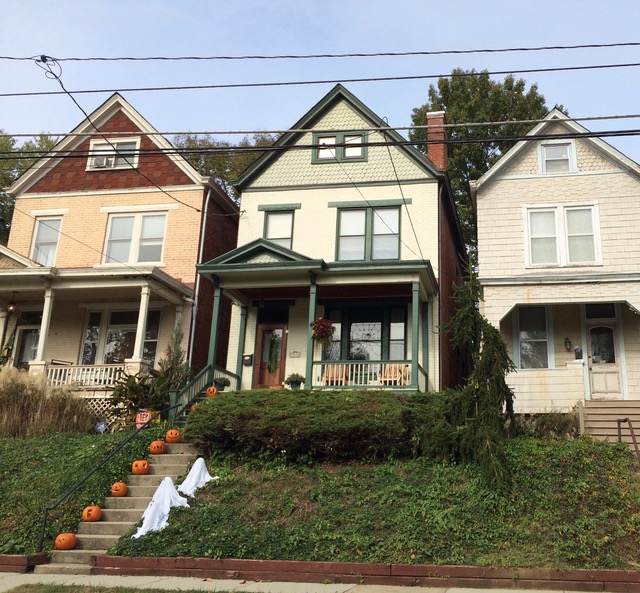Last Friday, when I learned of the renewed investigation of Hillary Clinton’s emails, I knew I’d be spending Saturday knocking on doors. I wanted to do my part, and was eager to know if the latest news had changed anyone’s mind.
When I learned the location I was to report to, I knew the neighborhood would be mostly black. It’s not on anyone’s list as up-and-coming. It has its share of crime. Some houses are in disrepair, but most are in great shape. Amid the campaign signs are signs of painters and roofers who’ve just finished painting and roofing. The streets are lined with trees. The front porches are deep. The yards are filled with Halloween decorations, piles of leaves and toys.
Looking at the neighborhood, I thought of the many times I heard Donald Trump conflate African Americans and inner cities. Was I about to walk the “inner city” of his mind?
Saturday’s mission was standard get-out-the-vote: They give you lists of people who usually vote and are likely to vote for your candidate. Theoretically, a receptive audience. Your job is to make sure everyone has made a commitment to vote and a plan to get to the polls.
Asking people what they think isn’t part of the drill. But conversation is.
The voices were as varied as I expected they’d be: The man who said he was a Bernie supporter, but admitted her competency won him over. The woman who pumped her fist in the air, joyful that she will live long enough to see a woman President. The four or five people, women and men, who said they were scared Trump would start a war.
One man wondered how anyone could think someone with no track record of helping people would start now. One woman remarked on Clinton’s toughness. Another wondered, after 20 years of investigations, “What more can we learn about this lady that we don’t already know?” Two or three had no intention of telling me who they planned to vote for. Many said they just want it to be over.
Then a man on his porch said it: “Welcome to the inner city. You know that’s what he thinks.” I asked how that makes him feel. “It pisses me off,” he said, “but you know what bothers me even more? The way he says ‘the African Americans,’ and that sneer on his face every time he says it.’’
There I had it. I’d been offended in a theoretical sense – offended at the notion that people of the same race would live the same lives and think the same thoughts. To the man on his porch, it was real.
I no longer give money to national campaigns or political parties. When I want to do my part for change, I make small contributions to local Millennialswho seem to be bringing the best of their millennial selves to politics. They seem to care less about political parties, more about getting stuff done.
And I knock on doors. I like the exercise. I like the conversations. I like that I’m no longer on any politician’s speed dial. I like not supporting the billion-dollar machine that fuels our electoral process. Best of all, knocking on doors fills me with hope that we can finally stop talking about people as if zip code or skin color predicts action and thought.
